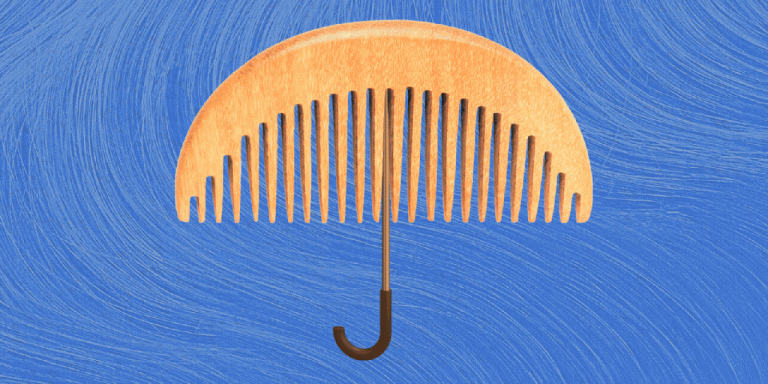
Stress of any form, together with childbirth, emotional trauma, and surgical procedure, can result in telogen effluvium, which is the medical identify for stress-induced hair shedding. The 2020s have been laborious and uniquely difficult for ladies. “Ladies tackle a lot lately, juggling careers, households, relationships, and extra—this stress takes a toll,” Hardik Doshi, MD, lead surgeon at Ample, a New York Metropolis hair restoration clinic, tells SELF.
And whereas SARS-CoV-2, the virus that causes COVID-19, doesn’t particularly trigger hair loss, infections are a well-established set off of telogen effluvium. “Each time you place stress on the physique, physiologic or in any other case, it might probably have an effect on the hair progress—from counts, thickness, and high quality to grain,” explains Natasha Atanaskova Mesinkovska, MD, the vice chair for scientific analysis, dermatology, on the College of California, Irvine Faculty of Drugs.
Naturally, the hair trade responded. Right this moment drugstore cabinets are bursting with bottles and devices promising improved hair density, diminished hair loss, and different Rapunzel-like aspirations. Sephora has a complete part devoted to thinning hair options, and the hashtag #HairLoss boasts tens of millions of views on TikTok. Even J.Lo has gotten in on the development: The singer partnered with telehealth firm Hers in 2019 to launch a hair remedy equipment.
This abundance of alternative is comparatively current. In contrast to the skincare market, which spans prescription merchandise, injectables, and in-office therapies (on prime of what’s lengthy existed within the magnificence aisle), there wasn’t a lot accessible to enhance hair as you age—till now. “Hair is the following frontier,” Dr. Mesinkovska tells SELF.
Up to now, the FDA has accredited just one topical hair loss answer for androgenetic alopecia, the commonest kind of hair loss, in girls: minoxidil (made well-liked by the model Rogaine). However now our Instagram feeds are being flooded by rivals—lots of which could really feel a bit extra sus. “It’s a really emotional difficulty, and that’s why it’s simple to market merchandise which can be going to supposedly make it easier to get well that hair loss,” Kelly Dobos, a beauty chemist and adjunct professor of beauty science on the College of Cincinnati, tells SELF. Additional complicating this difficulty is the truth that there are many potential causes of hair loss, starting from nutrient deficiency to genetics, making efficient remedy more difficult.
Watch out for “science-washing”
Lots of the merchandise being closely promoted proper now have impressive-sounding terminology like “based mostly in science,” “clinically confirmed,” or “scientifically formulated” of their advertising copy. However any model can conduct a research and make impressive-sounding claims no matter what it says, in line with Romanowski: “Whether or not it was optimistic or adverse outcomes, it doesn’t actually matter. You may simply say it was ‘clinically examined.’” Different phrases like “research-backed” may merely imply {that a} product was formulated by beauty chemists with a analysis background, Romanowski says.
OTC dietary supplements are a marked instance of those deceptive techniques. As SELF beforehand reported, it’s shockingly simple for producers to slap these buzzwords onto their bottles as a result of the FDA doesn’t regulate dietary dietary supplements for efficacy, that means manufacturers don’t should show their merchandise truly do what they are saying they’ll do earlier than they begin promoting them. Some well-liked hair progress dietary supplements that may run you near $100 a month are marketed as “clinically confirmed”—however there’s no customary definition for making that form of declare, that means it’s as much as the manufacturers’ interpretation. And that’s why it’s so necessary to maintain this massive caveat in thoughts: Dietary supplements (which additionally embody issues like biotin gummies) are “not supposed to diagnose, deal with, treatment, or stop a illness,” per the FDA. In different phrases, no matter grand guarantees they make or suggest, they can’t promise to deal with a critical hair loss situation as a result of they haven’t gone via the rigorous research and in depth approval course of that the FDA requires of pharmaceutical therapies.